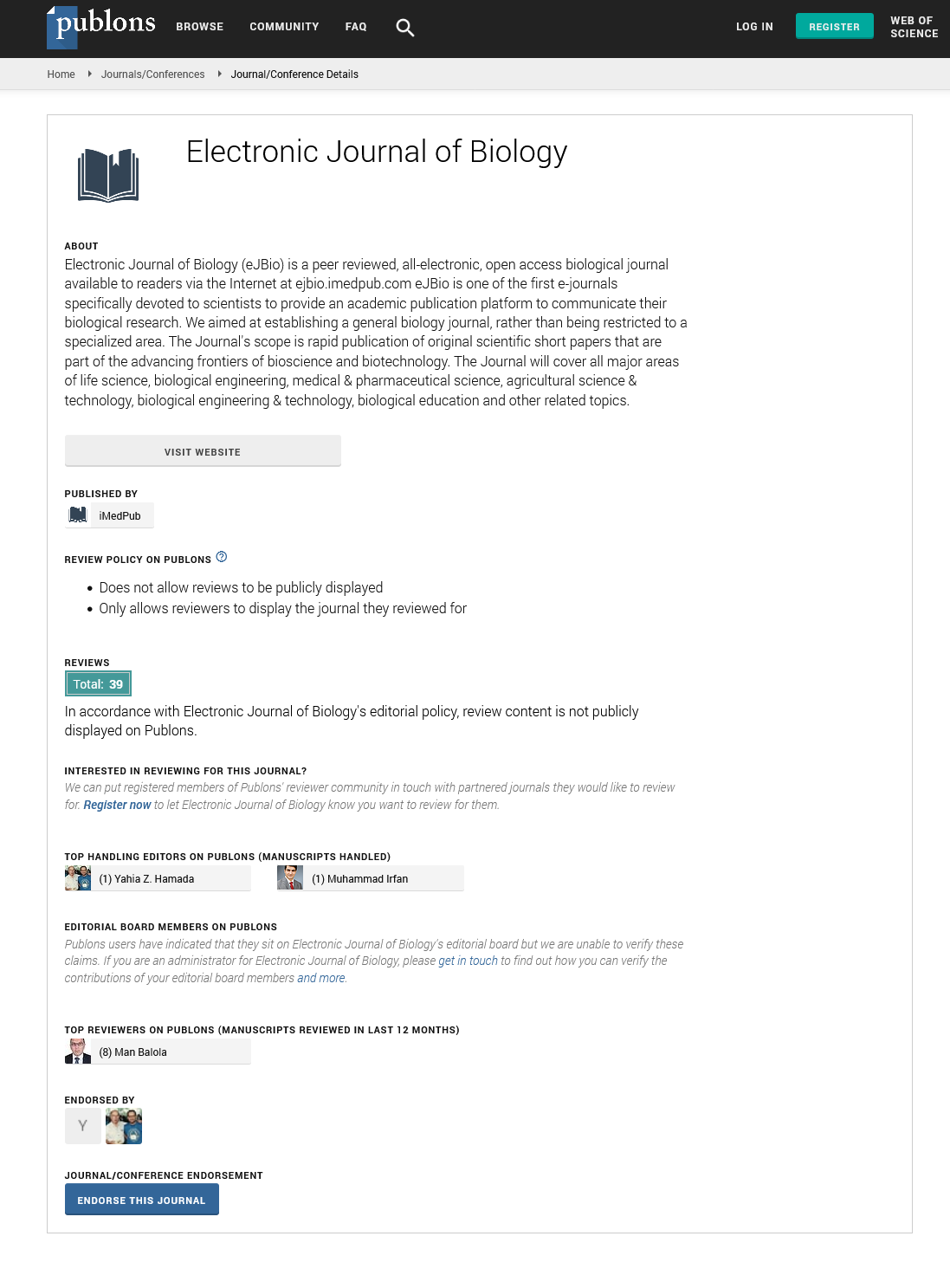Abstract
Parasitological Evaluation of Sachet Drinking Water in Areas of Lagos State, Nigeria
Sachet water (Pure water) is a major source of drinking water for low and medium class Nigerians. Evaluation of sachet water for the presence of intestinal cysts and eggs of parasites was carried out in Lagos State, Nigeria. This was in order to determine the safety and stability of such water for human consumption. Fifty samples of packaged water were purchased randomly from hawkers within twenty local government areas of Lagos. Samples were observed macroscopically for taste, colour and odour and pH tested according to the World health organization (W.H.O) Standard. 10 ml of each sample were taken within and outside by rinsing each sachet and centrifuged at 2500 rpm per min. Sediments were stained with Lugol’s iodine on a glass slide and examined microscopically at x40 and x100 under an Olympus binocular microscope. All the tested samples met the W.H.O standard of being colourless, odourless and tasteless and with an average pH of 7.42. Out of the fifty samples, 16% had impurities only, 24% had parasites and impurities and 18% had parasites only, hence 58% was not fit for human consumption of which 42% were contaminated with cysts and eggs of intestinal parasites and out of these 28% was found outside of the sachets. Cysts recovered were that of Entamoeba histolytica (10%) and Giardia lamblia (12%) and eggs of Ascaris lunbricoides (16%) and Necator americanus (Hookworm) (4%). This study indicated that some pure water is not really “pure”. Improper handling of sachet water by hawkers, play a significant role in transmission of water borne parasitic infections. Health education for handlers and hawkers of sachet water is advocated. Regulating bodies like National Agency for Food and Drugs administration and Control (NAFDAC), Nigerian Ministry of health and the Standard organization of Nigeria (SON), need to effectively monitor and get producers of sachet water to comply strictly with their guidelines.
Author(s):
Okwa Omolade O, Gbadamosi Zanaib O
Abstract | Full-Text | PDF
Share this

Google scholar citation report
Citations : 5001
Electronic Journal of Biology received 5001 citations as per google scholar report
Electronic Journal of Biology peer review process verified at publons
Abstracted/Indexed in
- Google Scholar
- China National Knowledge Infrastructure (CNKI)
- CiteFactor
- Electronic Journals Library
- Zoological Records
- WorldCat
- Proquest Summons
- Publons
- MIAR
- Openaccessarticles.com
- Secret Search Engine Labs
Open Access Journals
- Aquaculture & Veterinary Science
- Chemistry & Chemical Sciences
- Clinical Sciences
- Engineering
- General Science
- Genetics & Molecular Biology
- Health Care & Nursing
- Immunology & Microbiology
- Materials Science
- Mathematics & Physics
- Medical Sciences
- Neurology & Psychiatry
- Oncology & Cancer Science
- Pharmaceutical Sciences


